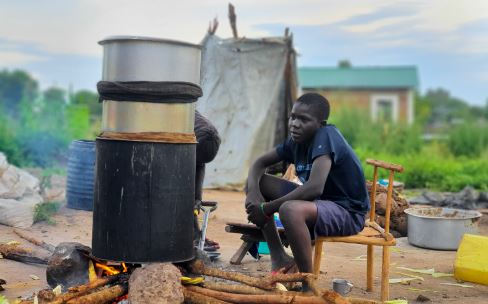The governor of Jonglei State has banned the production, sale, and consumption of alcoholic beverages and other harmful drugs in the state capital, Bor, and the beyond, amidst young people’s overindulgence and subsequent involvement in brawls.
The ban was made public in a gubernatorial order issued to and served to all relevant state institutions including the nine county commissioners on Wednesday.
Governor Mahjoub Biel Turuk’s press secretary, Biel Jiek Lual, told Radio Tamazuj on Wednesday evening that the state-wide ban was intended to restore order and peace.
“The order has been issued on Wednesday and will indefinitely remain effective,” he stated. “The reason for the order is that young people are using these harmful drugs and it has led to violence.”
According to Jiek, county authorities and all relevant institutions have been directed to have the order implemented and that punitive measures will be taken against those who contravene it.
A prominent Jonglei State women’s activist, Kenya Mach, said the ban is long overdue.
“People who have been known as drunkards have died and new ones are joining in to replace them,” she lamented. “Or children are spoiled and dropping out of schools so this move by the government is welcomed.”
The activist urged women to take up other income-generating activities that will not pose a risk to their social norms like brewing alcohol.
Another activist, Kuch Isaiah, said the banned substances are harmful to the health of the local population and that the ban was timely.
“It is within the mandate of the government to ban these beverages like Siko and Mokoyo because they are harmful to health. However, traders should be given a month or two to finish their stock because the very same government taxed these alcoholic drinks on roads and in the shops,” he said. “Women engaged in brewing local beverages should be provided alternatives by the government before the order is effected so that they can support their families.”




